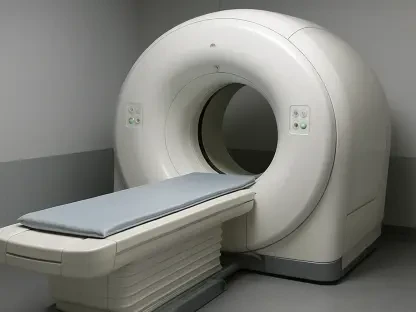In an era where global supply chains underpin nearly every facet of modern life, the United States finds itself at a critical juncture regarding its dependence on imported medical supplies, raising profound questions about national security and the potential vulnerabilities during crises. Essential items like personal protective equipment (PPE), medical consumables, and life-saving equipment such as ventilators often originate from foreign manufacturers, leaving the nation susceptible to disruptions during pandemics or geopolitical conflicts. A sudden halt in exports from key suppliers could cripple the U.S. healthcare system, exposing gaps in preparedness that could endanger millions of lives. This concern has gained urgency with recent governmental actions aimed at evaluating whether this reliance constitutes a genuine threat to the country’s safety and resilience. The potential for foreign powers to restrict access to these critical goods, whether through policy or malice, underscores the need for a thorough examination of current supply chain dynamics. As the U.S. navigates this complex issue, the balance between economic efficiency and self-sufficiency emerges as a defining challenge, prompting a deeper look into policies that could reshape how medical resources are secured for the future.
Examining the Scope of Supply Chain Vulnerabilities
The extent of U.S. dependence on imported medical supplies has come under intense scrutiny through a formal investigation launched by the Department of Commerce’s Bureau of Industry and Security (BIS) on September 24 of this year. This probe, conducted under Section 232 of the Trade Expansion Act of 1962, targets a broad array of healthcare essentials, including PPE such as surgical masks and N95 respirators, consumables like syringes and bandages, and durable equipment like hospital beds and MRI machines. Notably, pharmaceuticals are excluded from this specific inquiry, as they fall under a separate evaluation, allowing for a concentrated focus on physical medical goods. The investigation seeks to determine whether reliance on foreign supply chains undermines the nation’s ability to respond effectively in emergencies, with potential outcomes including tariffs or quotas if deemed necessary. With a statutory timeline of up to 270 days, results could emerge by spring of next year, though there are indications of an expedited process driven by current administrative priorities. This comprehensive assessment aims to map out the vulnerabilities inherent in sourcing critical items from abroad, setting the stage for significant policy shifts.
Beyond the immediate products under review, the investigation reflects broader concerns about the fragility of global supply chains in times of crisis. Many of these medical supplies are produced in a handful of countries, creating concentrated points of failure that could be exploited or disrupted by natural disasters, political instability, or deliberate export bans. The evaluation process is not merely an academic exercise but a strategic effort to quantify domestic production capacity against projected needs during high-stress scenarios. Factors such as lead times for ramping up local manufacturing and the cost implications of reducing import dependence are also under consideration. If the findings suggest that foreign reliance poses a substantial risk, the resulting measures could fundamentally alter trade relationships and industry practices. This focus on supply chain vulnerabilities highlights a pivotal moment for reassessing how the U.S. ensures access to life-saving resources when global conditions turn unfavorable.
National Security Implications of Import Dependence
At the core of the ongoing Section 232 investigation lies a pressing concern: does the U.S. reliance on imported medical supplies jeopardize national security? The BIS is delving into multiple dimensions of this issue, including the disparity between domestic demand and production capabilities, as well as the risks tied to sourcing from a limited number of foreign suppliers. A key worry is the potential for other nations to “weaponize” their control over these supply chains by imposing export restrictions during critical moments, such as a public health emergency or military conflict. Such actions could severely hamper the U.S. healthcare system’s ability to function, leaving hospitals and clinics without essential tools to treat patients. The investigation also examines historical instances where supply disruptions have exposed weaknesses, aiming to predict and mitigate similar threats in the future. This evaluation underscores the intersection of health policy and national defense, framing medical supply access as a strategic priority.
Further compounding these security concerns are trade practices that may disadvantage U.S. manufacturers, such as foreign subsidies or artificially low pricing due to overproduction. These tactics can erode domestic industry, making it harder to maintain or rebuild production capacity when needed most. If foreign dominance in the market stifles local innovation or forces reliance on potentially hostile suppliers, the implications extend beyond economics into the realm of sovereignty and self-reliance. The investigation seeks to uncover whether such dynamics create exploitable vulnerabilities that adversaries could leverage, whether through economic pressure or outright supply denial. By addressing these multifaceted risks, the process aims to inform policies that could safeguard the nation’s health infrastructure against both intentional and unintended disruptions, ensuring that security is not compromised by globalization’s complexities.
Engaging Stakeholders in Shaping Policy Outcomes
Recognizing the profound impact that potential restrictions on imported medical supplies could have on various sectors, the BIS has opened a public comment period through Regulations.gov, with submissions due by October 17 of this year. This mechanism allows a wide range of stakeholders—spanning healthcare providers, industry representatives, and international trade partners—to provide input on the perceived risks and feasible solutions. Although no public hearings are scheduled, which limits direct dialogue, the comment process remains a vital channel for influencing the investigation’s conclusions and subsequent actions. Feedback could address concerns about how tariffs or quotas might affect the cost and availability of critical medical goods, potentially reshaping the balance between security measures and practical healthcare delivery. This opportunity to contribute highlights the importance of collaborative problem-solving in tackling a challenge with far-reaching consequences.
The compressed timeline for public input, while indicative of the administration’s urgency, raises questions about the depth of engagement possible within such a short window. Stakeholders must navigate the complexity of articulating detailed positions on issues like domestic manufacturing incentives or the economic ripple effects of trade barriers. Their contributions could play a decisive role in determining whether protective measures are narrowly tailored or broadly applied, impacting everything from hospital budgets to patient access to care. Moreover, the absence of hearings means written submissions must carry the weight of conveying nuanced perspectives on supply chain risks versus global trade benefits. This public role in the investigation emphasizes that addressing national security in medical supply chains is not solely a governmental task but a shared responsibility requiring diverse insights to craft balanced and effective policies.
Contextualizing Within Broader Trade Strategies
The Section 232 investigation into medical supplies does not stand alone but fits within a larger pattern of trade policies pursued by the current administration since early this year. Multiple industries, ranging from steel and aluminum to semiconductors and robotics, have come under similar scrutiny through parallel probes aimed at reducing foreign dependence in sectors critical to national interests. This wave of actions reflects a concerted push toward economic nationalism, prioritizing domestic production as a bulwark against external vulnerabilities. The rapid implementation of tariffs in other sectors, such as copper within just 144 days, illustrates an accelerated approach to policy enforcement that could preview the timeline for medical supply outcomes. By situating this investigation within a broader strategy, it becomes clear that the focus on healthcare goods is part of a systemic effort to reshape U.S. trade dynamics for enhanced security.
Another layer to this context is the administration’s dual tariff framework, which differentiates between broad tariffs under the International Emergency Economic Powers Act for general trade leverage and targeted Section 232 tariffs for strategically vital sectors. Products subject to Section 232 restrictions, like potentially medical supplies, are exempt from overlapping broader tariffs, demonstrating a deliberate design to avoid excessive economic strain while protecting key industries. This nuanced strategy allows for flexibility in addressing immediate security concerns without disrupting the entire import landscape. Additionally, framework agreements with allies like the European Union and Japan offer moderated tariffs in other sectors but do not yet address medical supplies, suggesting that further negotiations may be needed to mitigate international fallout. This broader trade policy environment reveals a calculated balance between safeguarding national interests and managing global economic relationships.
Charting the Path Forward for Supply Chain Security
Reflecting on the trajectory of the Section 232 investigation, it’s evident that the evaluation of medical supply imports marks a significant chapter in the ongoing discourse on national security. The detailed probe by BIS, initiated earlier this year, underscores deep-seated concerns about the U.S. vulnerability to foreign supply chain disruptions, particularly in healthcare—a sector integral to public safety. Each facet, from assessing production gaps to analyzing risks of export controls by other nations, contributes to a comprehensive understanding of the stakes involved. The public comment period, though brief, provides a platform for stakeholders to voice critical insights, potentially influencing the balance between protective measures and economic realities.
Looking ahead, the path to securing medical supply chains demands actionable strategies that build on the findings of such investigations. Policymakers should prioritize incentives for domestic manufacturing, such as tax breaks or grants, to bolster local production without unduly inflating costs for healthcare providers. Simultaneously, fostering international partnerships through targeted trade agreements could ensure diversified supply sources, reducing reliance on any single foreign entity. Investing in stockpiles of essential goods and advanced planning for crisis scenarios also emerges as a prudent step to mitigate risks of sudden shortages. As outcomes from this probe unfold, likely by spring of the coming year, the lessons learned must inform a resilient framework that safeguards national health security while navigating the complexities of global trade, ensuring preparedness for future challenges.









